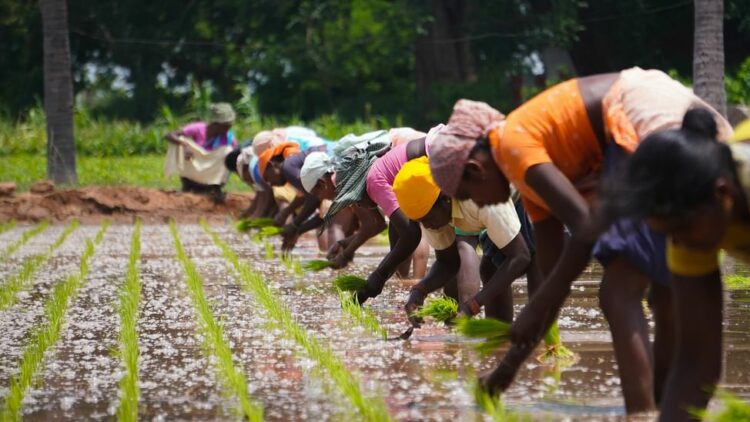Having our roots in the agrarian economy, India’s financial success has often been linked with prosperity and success in the agriculture sector.
In Gujarat, too, agriculture is an important sector, providing employment to about 52 % people (as per 2011 census).
The agro based economy has got a considerable attention in the Prime Minister’s home state- right from common people to scientists, private players and rural bodies. As the government introduced a series of measures, over time, to promote this sector and ensure prosperity of farmers, a new strategy has been recently adopted and promoted by the state administration.
It is called Natural Farming.
Organic farming, which is the buzzword in the agriculture sector across the country, has some similarities with Natural Farming, but there are essential differences. In natural farming, neither chemical nor organic fertilizers are added to the soil. However, organic farming includes the use of organic fertilizers and manures like compost, vermicompost, cow dung manure, etc.
On July 10, 2022 Prime Minister Narendra Modi, while attending an event in Surat said, “I am happy to mention that village committees, taluka committees and district committees were formed to select 75 farmers from each village panchayat to get into ‘natural farming’. This resulted in more than 40,000 farmers from over 550 panchayats in a short span of time. The Surat model of natural farming should be an inspiration for India.”
Adding more, the Prime Minister said, “When you practice natural farming, you serve Mother Earth, protect the quality of soil, and ensure long-lasting productivity. In a way, you are protecting the environment. Zero Budget or Natural Farming can change the crop pattern in a scientific manner”.
Gujarat is fortunate to have Governor Acharya Devvrat- a strong proponent of Natural Farming. On Chief Minister Bupendra Patel’s take on natural farming, a government official said, “Our Chief Minister is a firm advocate of natural farming for two reasons. One, it ensures better and healthy food for the population. At the same time, it is sustainable.” In December 2021, the Government of Gujarat declared Dang district as ‘100% organic farming district.” This has opened new horizons.
Adivasis or tribals have been residing in the natural forest and highland areas of Dang. The natives are very much
engaged in agricultural practices. It goes without stating that Dang region is thus a unique and perfectly setup region for natural farming where farming can be undertaken without harming nature.
Sharing his personal experiences in natural farming, Governor Devvrat says, “Natural farming has no restrictions.
No artificial components are used. It uses Jeevamrut – natural fertilisers made from cow dung and urine of native
cattle. The only thing a farmer has to do is ensure a healthy breed of cattle which produces eight kilograms of dung and about the same quantity of urine a day”.
The state government has also announced a financial aid of Rs 31 crore under ‘Sampurna Rasayan Mukt Dang Jilla’ to be distributed in Dangs to ensure that the district becomes completely free of chemical pesticides and fertilisers.
Chief Minister Patel said, “It is the need of the hour to turn towards Natural Farming. I am confident that the farmers of Dang will inspire and encourage other farmers and people, at large, to undertake natural farming”.
State officials have been instructed to study more on natural farming as the poisonous substances that enter the food chain through urea and pesticides in fruits and vegetables are starting to create adverse effects on the health of people”.
The Chief Minister also says that agriculture accounts for about 19% of greenhouse gases emission at the national level and hence gradual switchover to natural farming can bring down emission rates.
To sum up, the agricultural growth rate was not low in Gujarat. It was volatile. However, the sector picked up
dramatically with high growth and low volatility after 2000.
In recent years too, the sector continued to achieve a high growth rate with comparatively lower volatility.
From 2001–02 to 2013–14, Gujarat’s agricultural GDP grew at 9.2%, which was highest among the major
agri-states.
According to Prime Minister Modi, the Centre has created 30,000 clusters of natural farms for the benefit of farmers. One million hectares of land will be covered under the ‘Paramparagat Krishi Vikas Scheme’.
Recalling the natural farming knowledge hidden in the scriptures and popular culture of India, the Prime Minister also has urged institutions, NGOs and experts to research traditional knowledge and how that can be communicated to farmers based on changing times.




















Comments